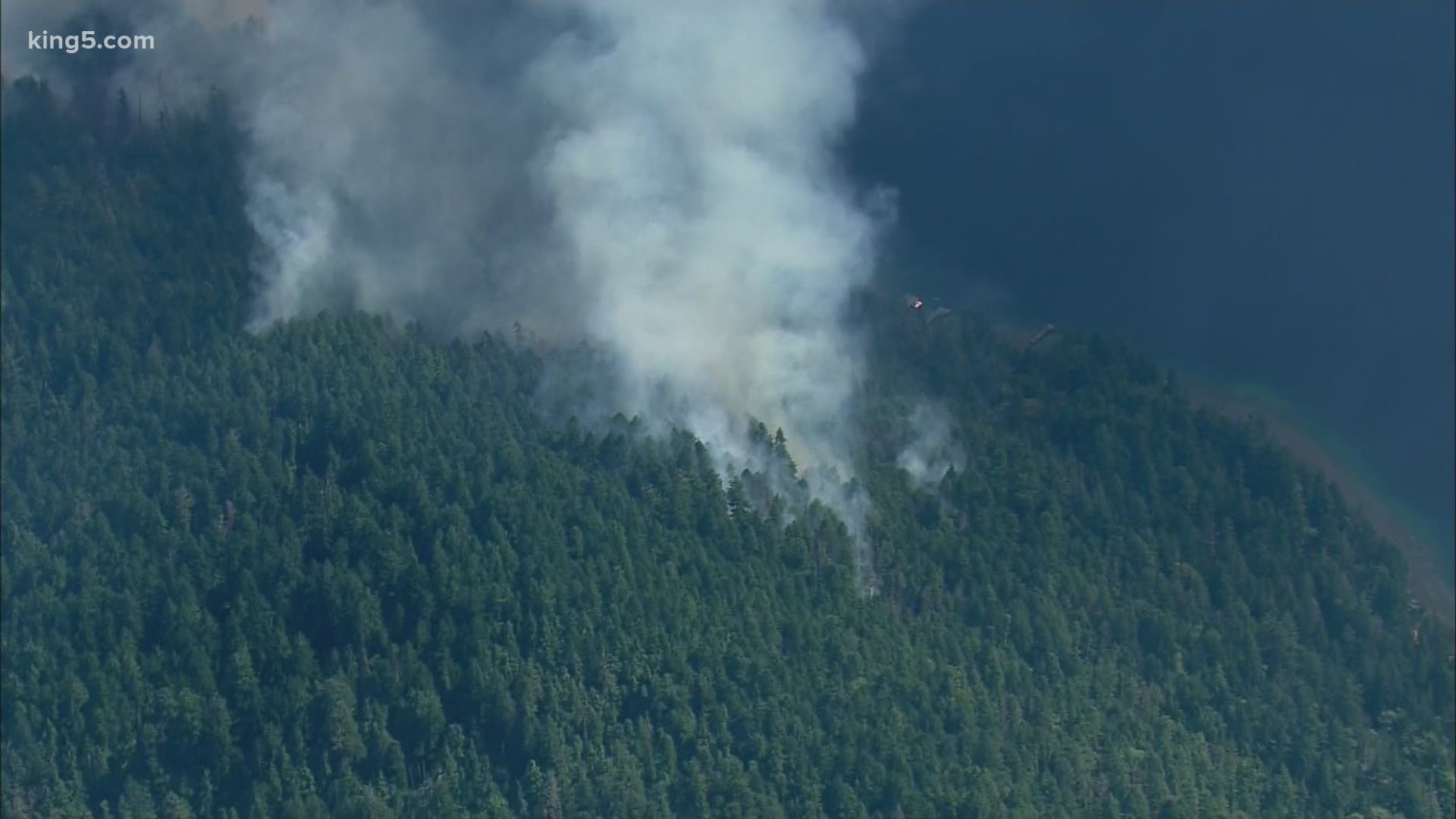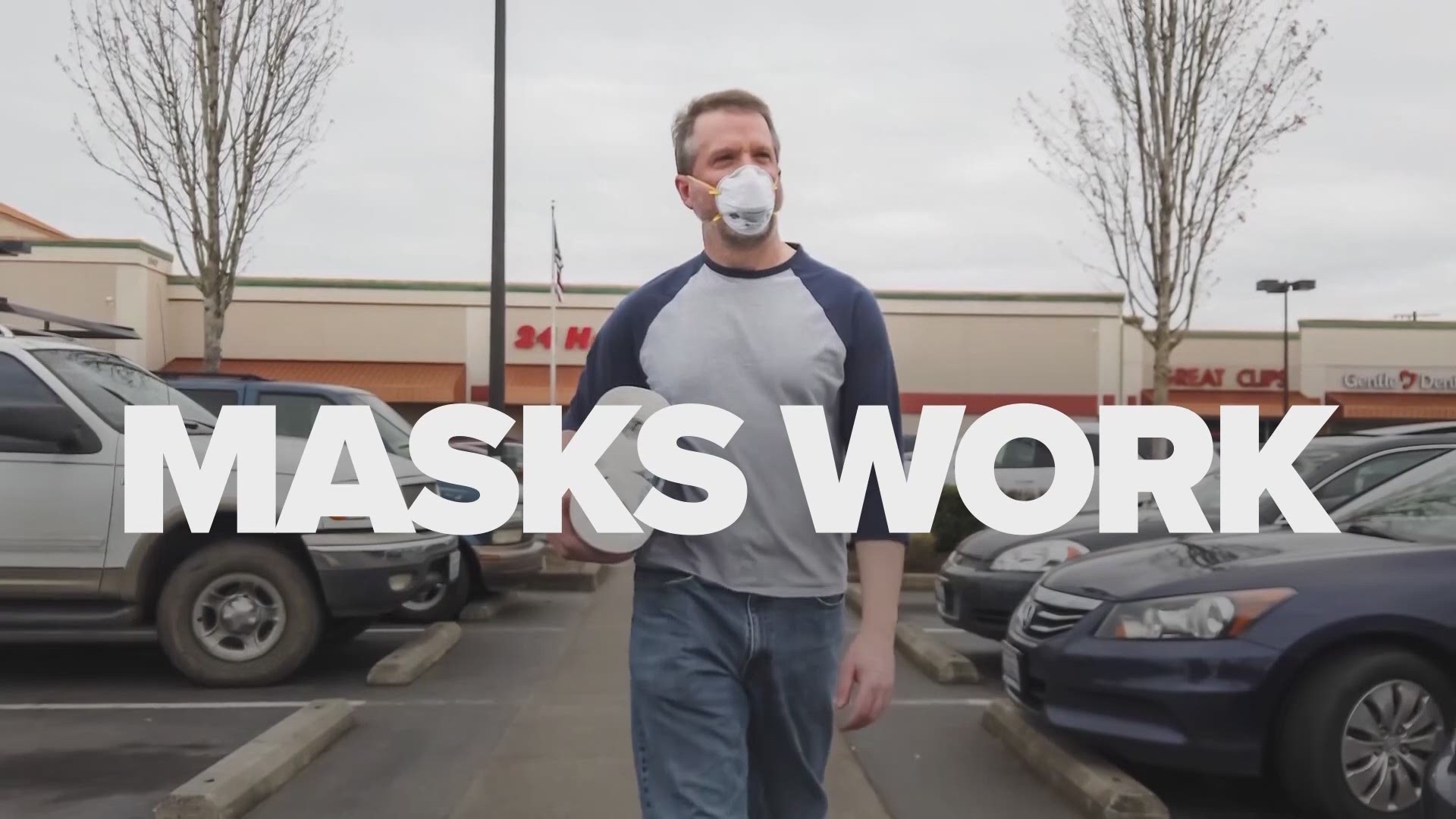SEATTLE — As wildfire season heats up in Washington state, health officials warn smoke from wildfires can increase the severity of symptoms of COVID-19 in already vulnerable populations.
Smoke from wildfires contains small particles and other chemicals that can irritate people's eyes, nose, throat and lungs. While symptoms are relatively minor for most people, they can be serious or even deadly for certain groups.
According to officials with Public Health Seattle & King County, wildfire smoke can be especially damaging to children, pregnant women, stroke survivors and people who are over 65 years of age or who have a respiratory disease or illness, heart disease or diabetes.
"COVID-19 can make it much harder to breathe. Poor air quality caused by wildfire smoke may make it even harder for people to fight COVID-19 since both have the potential to affect the lungs and other overlapping parts of the immune system. Many people most susceptible to COVID-19 are also those most vulnerable to the impacts of wildfire smoke," wrote King County health officials.
Air quality in King, Pierce and Snohomish counties on Thursday was rated as good by the Puget Sound Clean Air Agency, but as wildfires burning in central Washington persist that could change.
There are currently two large wildfires burning in north-central Washington.
The Greenhouse Fire has burned over 5,000 acres on land managed by the Colville Indian Reservation. The Anglin fire has burned more than 1,500 acres in Okanogan County, according to the Incident Information System, an agency that tracks wildfire statuses across the country.
A third fire ignited just this week near Lake Crescent on the Olympic Peninsula.
Commissioner of Public Lands for the Department of Natural Resources (DNR) Hilary Franz issued a statewide burn ban this week for lands managed by DNR through September due to the threat of wildfires in the state.
Although western Washington has yet to see poor air quality from these fires, health officials recommend being prepared should the air quality take a turn for the worst.
Filtering the air in your home will help reduce the risk of COVID-19 as well as smoke, health officials said. They also recommend reducing indoor sources of air pollution when it gets smoky by keeping windows and doors closed and by avoiding things like burning candles, smoking indoors, or vacuuming unless you have a vacuum with a HEPA filter.
"Filtered air will reduce smoke levels and the amount of virus circulating in the air indoors," wrote county health officials. "However, filtering air indoors alone will not be enough to protect you from the spread of COVID-19, and best practices of social distancing, hand washing, and other measures should still be followed."
Health officials said if the air quality is poor, people should stay indoors as much as possible.
Due to the coronavirus pandemic, public spaces that have previously been used as clean air centers in Washington when the state experiences wildfire smoke may not be open or have lower capacity this year.
"During COVID-19, we need to stay safe by keeping six feet apart. This will make it difficult to open public spaces as clean air centers if we experience wildfire smoke...Creating a clean air space inside your home is likely your best option to get relief from wildfire smoke this season," health officials said.
What about face masks?
While health officials said cloth and surgical masks generally provide "very little" protection against wildfire smoke, they do still help limit the spread of COVID-19.
Health officials still recommend people wear face coverings when outside their home when 6 feet of physical distance cannot be maintained.
Experts said N95 respirators, when fitted and worn properly can provide protection against wildfire smoke, but due to COVID-19, they are in short supply.


